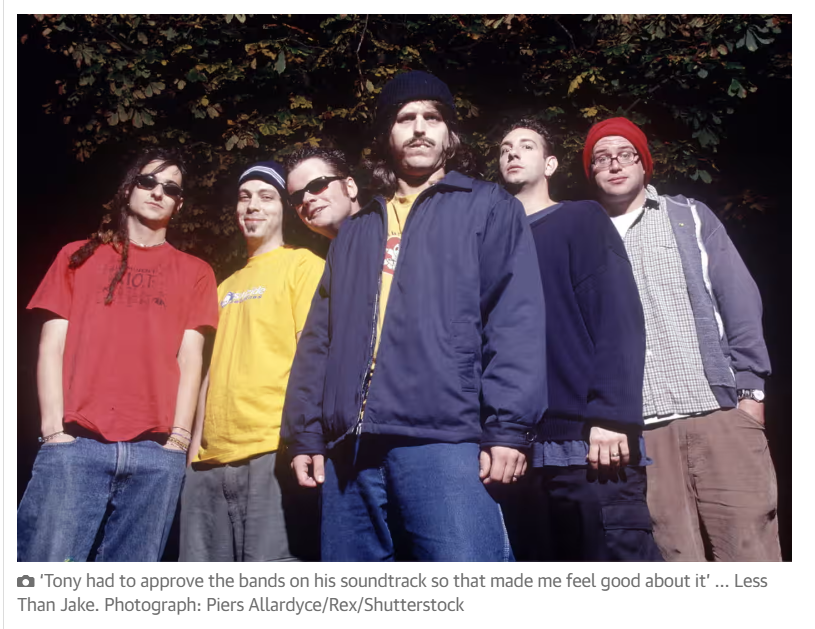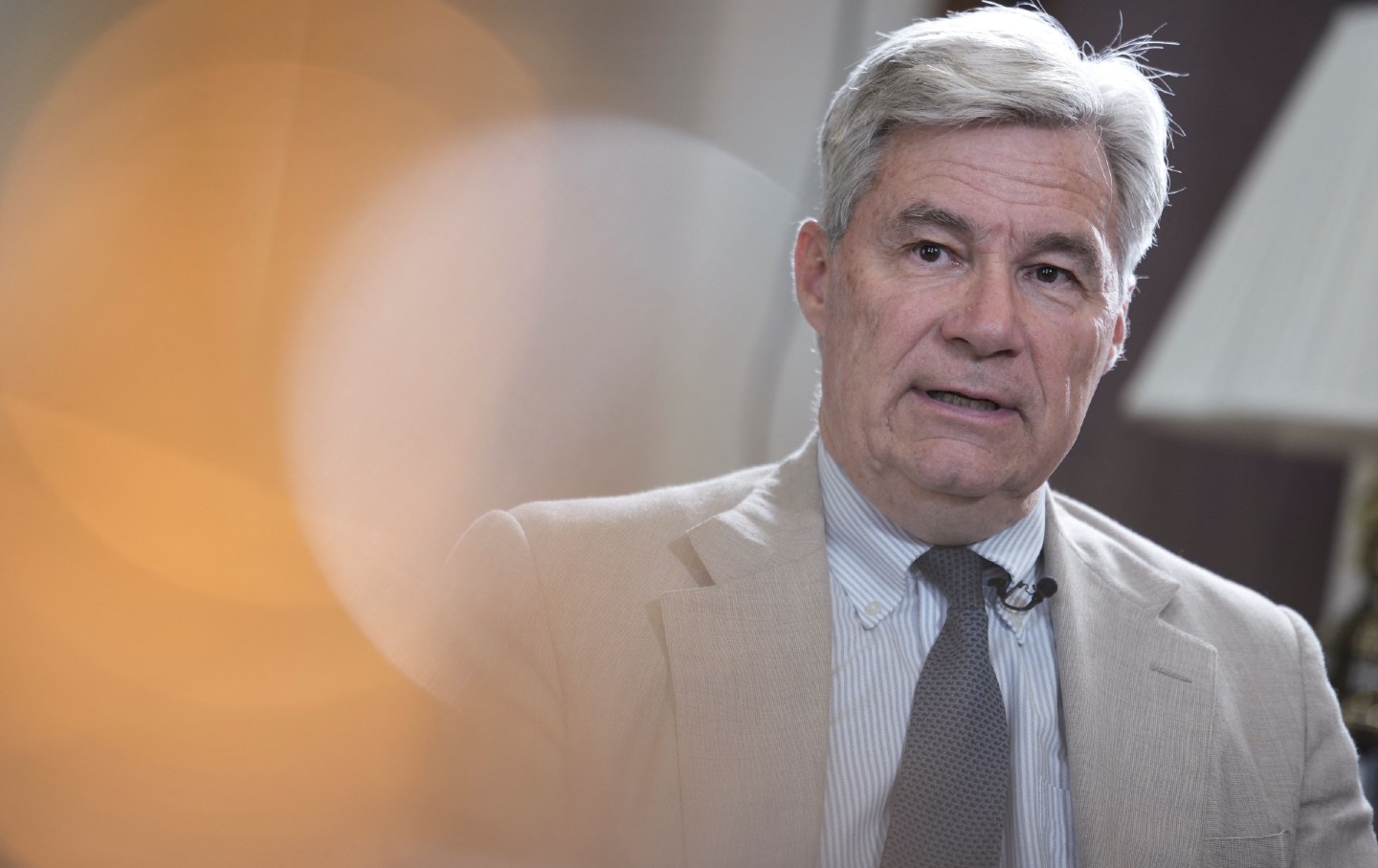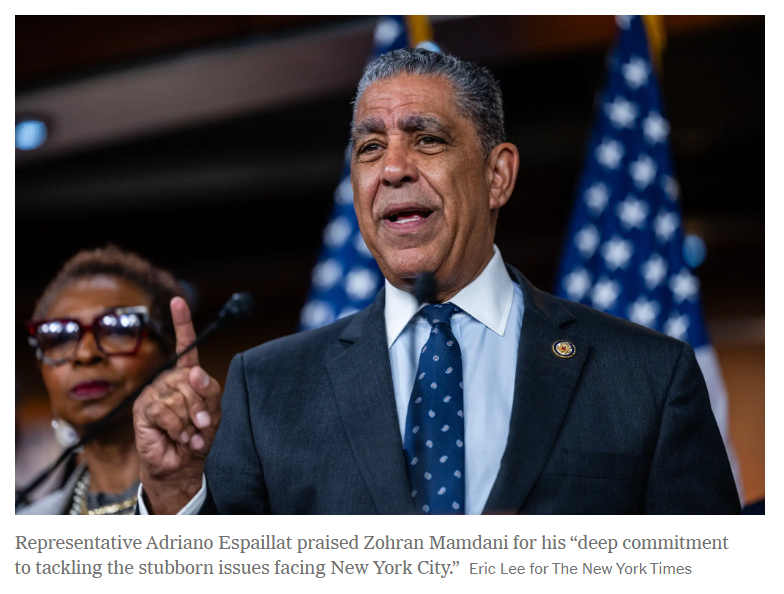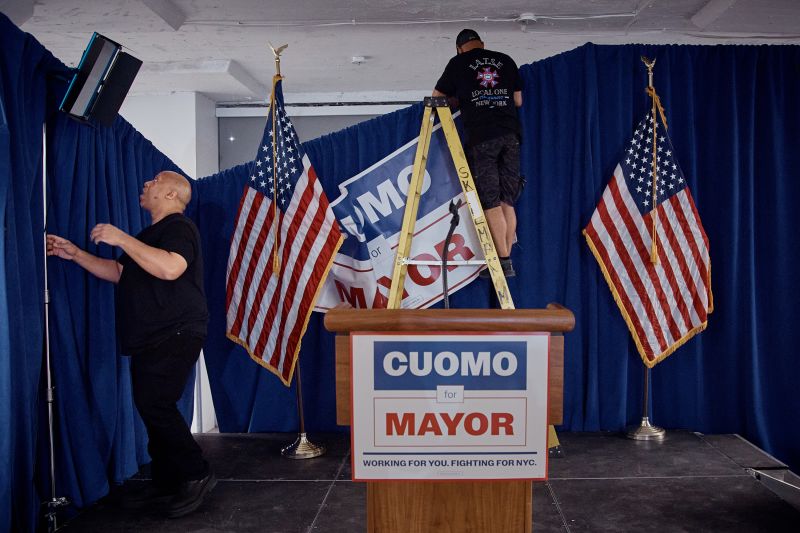Welcome to DU!
The truly grassroots left-of-center political community where regular people, not algorithms, drive the discussions and set the standards.
Join the community:
Create a free account
Support DU (and get rid of ads!):
Become a Star Member
Latest Breaking News
Editorials & Other Articles
General Discussion
The DU Lounge
All Forums
Issue Forums
Culture Forums
Alliance Forums
Region Forums
Support Forums
Help & Search
Celerity
Celerity's Journal
Celerity's Journal
July 11, 2025
Label: Delicious Vinyl – DV 9040
Format: 3 x Vinyl, LP, Compilation
Country: US
Released: 3 Jun 2008
Genre: Electronic, Folk, World, & Country, Funk / Soul, Hip Hop, Pop, Rock
Style: Pop Rock, House, Abstract, Disco, Instrumental, Hip Hop, Breakbeat, Hip-House, Electro






The Pharcyde - Runnin' (Philippians Remix) 2008 remix of the 1995 original
Label: Delicious Vinyl – DV 9040
Format: 3 x Vinyl, LP, Compilation
Country: US
Released: 3 Jun 2008
Genre: Electronic, Folk, World, & Country, Funk / Soul, Hip Hop, Pop, Rock
Style: Pop Rock, House, Abstract, Disco, Instrumental, Hip Hop, Breakbeat, Hip-House, Electro






July 11, 2025

https://psyche.co/videos/a-former-office-worker-charts-his-own-path-herding-sheep-high-into-the-pyrenees

Feeling unfulfilled by suit-and-tie jobs, Adham Dobai made a dramatic career pivot, trading his office and its rigid structures for the centuries-old practice of ‘transhumance’ – a life of movement alongside animals, and between pastures. Today, Dobai finds his work – herding sheep high into the French Pyrenees with the help of his trusty dogs, Caly and Pax – far more enriching. As he discusses in the short documentary Notes from Above the Clouds, it’s not an existence for everyone, requiring weeks without human company and rife with the unpredictable frustrations that working in the elements and alongside animals can bring. But Dobai, who views the ‘whole mountain as [his] playground’, thrives in the rugged solitude, finding a deep connection with the terrain, the animals and this ancient tradition. In stunning cinematic shots, the London-born, Barcelona-based director Jake Joynson makes Dobai’s love of life in this beautiful yet trying place easy to understand, capturing the sublime beauty of the landscapes that Dobai never tires of.
video at the top link
Notes from above the clouds: A former office worker charts his own path herding sheep high in the Pyrenees (short video)

https://psyche.co/videos/a-former-office-worker-charts-his-own-path-herding-sheep-high-into-the-pyrenees

Feeling unfulfilled by suit-and-tie jobs, Adham Dobai made a dramatic career pivot, trading his office and its rigid structures for the centuries-old practice of ‘transhumance’ – a life of movement alongside animals, and between pastures. Today, Dobai finds his work – herding sheep high into the French Pyrenees with the help of his trusty dogs, Caly and Pax – far more enriching. As he discusses in the short documentary Notes from Above the Clouds, it’s not an existence for everyone, requiring weeks without human company and rife with the unpredictable frustrations that working in the elements and alongside animals can bring. But Dobai, who views the ‘whole mountain as [his] playground’, thrives in the rugged solitude, finding a deep connection with the terrain, the animals and this ancient tradition. In stunning cinematic shots, the London-born, Barcelona-based director Jake Joynson makes Dobai’s love of life in this beautiful yet trying place easy to understand, capturing the sublime beauty of the landscapes that Dobai never tires of.
video at the top link
July 11, 2025
https://www.theguardian.com/games/2025/jul/11/music-tony-hawks-pro-skater-soundtracks

‘The culture of skating and music is so meshed’ … Tony Hawk's Pro Skater 3 + 4. Photograph: Activision
When millions of parents bought their kids a Tony Hawk’s Pro Skater game in the late 90s and early 00s, they couldn’t have understood the profound effect it would have on their children’s music taste. With bands from Bad Religion to Papa Roach and Millencolin accompanying every failed spin and grind, these trick-tastic games slyly doubled up as the ultimate compilation CD.
While the Fifa games have an equally storied history with licensed music, those soundtracks feel impersonal – a who’s who of whichever artists EA’s associated record labels wanted to push at the time. Pro Skater’s soundtrack, by contrast, felt like being handed a grubby and slightly dog-eared handmade mixtape, still battered from its last tumble at the local skate park.
“Most of the bands were chosen because I heard them growing up at the skate park. I would say most of the original punk stuff – even the early hip-hop – that was my soundtrack to skating in the 80s and 90s,” Tony Hawk says. “I never imagined that I would be a tastemaker but, that was really just a byproduct of staying true to the culture.”
“Tony was very involved in punk rock,” says Chris DeMakes, frontman of Less Than Jake, before his set at this year’s Slam Dunk festival. “Ultimately, he had to approve the bands on his soundtrack … So that always kind of made me feel good about it.” The band’s Roger Lima adds: “The culture of skating and music is so meshed, it made sense for them to have a real soundtrack to it.”
snip


Tony Hawk's Pro Skater 2 OST (Extended) (2000)
PS1, PC & N64
0:00:00 Neversoft Intro
0:00:17 Rage Against the Machine - Guerilla Radio
0:03:43 Brian Bright - THPS II
0:07:08 Anthrax and Public Enemy - Bring The Noise
0:10:37 Millencollin - No Cigar
0:13:19 Paparoach - Blood Brother's
0:16:49 Bad Religion - You
0:18:53 Lagwagon - May 16
0:21:49 Swingin' Utters - Five Lessons Learned
0:23:44 Consumed - Heavy Metal Winner
0:26:13 Powerman 5000 - When Worlds Collide
0:29:10 PapaSean + BlackPlanetMusic - Out With The Old
0:32:55 Naughty By Nature - Pin The Tail On The Donkey
0:36:38 Styles Of Beyond - SubCulture
0:40:07 Dub Pistols - Cyclone
0:43:39 The High and Mighty - B Boy Document '99 ft.Mos Def & Mad Skillz
0:47:31 Born Allah - City Stars
XBOX
0:48:16 THPS2x - Club London
iOS
0:50:52 Operatic - Interested In Madness
0:54:08 Killing California - Now I'm You
0:55:49 Bobot Adrenaline - Wasted Youth
0:58:56 The Spanks - Just Dance
1:00:33 The Lions Rampant - The World Won't Spin Forever
1:03:10 Nathan Xander - The Alchemist
1:08:27 Goonies Never Say Die - Everyone Comes To Life
1:12:39 Late Night Conditions - Saviour
1:16:12 Murs & Terrence Martin- Fresh Kicks
Pocket PC
1:19:28 Oranger - Garden Party For Murder Pride
1:22:40 Delegate - Flat Out
1:26:01 Kissinger - Certain Girls
1:29:24 The Clutters - Rock And Roll
1:32:44 Ryan Young - Crickets In The Soap
Fin.K.L (Korean release)
1:36:43 Now
1:40:14 White
1:44:08 To My Prince
1:47:59 Feel Your Love
1:51:33 Waiting For You
1:55:42 Pride
'It fully altered my taste in music': bands reflect on the awesome power of the Tony Hawk's Pro Skater soundtracks
The games’ runaway success introduced a whole generation to hopped up US punk and metal. Bands including Less Than Jake, the Ataris and AFI pay tribute to a gaming megastar who loves them backhttps://www.theguardian.com/games/2025/jul/11/music-tony-hawks-pro-skater-soundtracks

‘The culture of skating and music is so meshed’ … Tony Hawk's Pro Skater 3 + 4. Photograph: Activision
When millions of parents bought their kids a Tony Hawk’s Pro Skater game in the late 90s and early 00s, they couldn’t have understood the profound effect it would have on their children’s music taste. With bands from Bad Religion to Papa Roach and Millencolin accompanying every failed spin and grind, these trick-tastic games slyly doubled up as the ultimate compilation CD.
While the Fifa games have an equally storied history with licensed music, those soundtracks feel impersonal – a who’s who of whichever artists EA’s associated record labels wanted to push at the time. Pro Skater’s soundtrack, by contrast, felt like being handed a grubby and slightly dog-eared handmade mixtape, still battered from its last tumble at the local skate park.
“Most of the bands were chosen because I heard them growing up at the skate park. I would say most of the original punk stuff – even the early hip-hop – that was my soundtrack to skating in the 80s and 90s,” Tony Hawk says. “I never imagined that I would be a tastemaker but, that was really just a byproduct of staying true to the culture.”
“Tony was very involved in punk rock,” says Chris DeMakes, frontman of Less Than Jake, before his set at this year’s Slam Dunk festival. “Ultimately, he had to approve the bands on his soundtrack … So that always kind of made me feel good about it.” The band’s Roger Lima adds: “The culture of skating and music is so meshed, it made sense for them to have a real soundtrack to it.”
snip


Tony Hawk's Pro Skater 2 OST (Extended) (2000)
PS1, PC & N64
0:00:00 Neversoft Intro
0:00:17 Rage Against the Machine - Guerilla Radio
0:03:43 Brian Bright - THPS II
0:07:08 Anthrax and Public Enemy - Bring The Noise
0:10:37 Millencollin - No Cigar
0:13:19 Paparoach - Blood Brother's
0:16:49 Bad Religion - You
0:18:53 Lagwagon - May 16
0:21:49 Swingin' Utters - Five Lessons Learned
0:23:44 Consumed - Heavy Metal Winner
0:26:13 Powerman 5000 - When Worlds Collide
0:29:10 PapaSean + BlackPlanetMusic - Out With The Old
0:32:55 Naughty By Nature - Pin The Tail On The Donkey
0:36:38 Styles Of Beyond - SubCulture
0:40:07 Dub Pistols - Cyclone
0:43:39 The High and Mighty - B Boy Document '99 ft.Mos Def & Mad Skillz
0:47:31 Born Allah - City Stars
XBOX
0:48:16 THPS2x - Club London
iOS
0:50:52 Operatic - Interested In Madness
0:54:08 Killing California - Now I'm You
0:55:49 Bobot Adrenaline - Wasted Youth
0:58:56 The Spanks - Just Dance
1:00:33 The Lions Rampant - The World Won't Spin Forever
1:03:10 Nathan Xander - The Alchemist
1:08:27 Goonies Never Say Die - Everyone Comes To Life
1:12:39 Late Night Conditions - Saviour
1:16:12 Murs & Terrence Martin- Fresh Kicks
Pocket PC
1:19:28 Oranger - Garden Party For Murder Pride
1:22:40 Delegate - Flat Out
1:26:01 Kissinger - Certain Girls
1:29:24 The Clutters - Rock And Roll
1:32:44 Ryan Young - Crickets In The Soap
Fin.K.L (Korean release)
1:36:43 Now
1:40:14 White
1:44:08 To My Prince
1:47:59 Feel Your Love
1:51:33 Waiting For You
1:55:42 Pride
July 11, 2025

Larry the No 10 cat is given the chance to share his views during President Macron's visit by a French TV journalist

July 11, 2025

The age of global consensus has ended, demanding a new, strategic, and resilient approach to globalisation.
https://www.socialeurope.eu/the-end-of-an-era-whats-next-after-globalisation

For decades, globalisation served as the default setting for economic policymaking. Open markets, free capital flows, and integrated supply chains were not merely policy instruments; they were articles of faith. From Washington to Brussels to Beijing, the conviction held that economic integration would deliver prosperity, secure peace, and ultimately bring political convergence. That consensus has now collapsed. What we are witnessing is not a tactical reorientation of trade policy, but a rupture in the political economy of globalisation itself.
The warning signs were always present. The 2008 financial crisis exposed the fragility of cross-border finance and the risks of deregulated markets. However, rather than rebalancing, the response was one of retrenchment. Fiscal austerity, regressive tax systems, and wage stagnation disillusioned broad segments of the population. Financialisation accelerated, inequality soared, and labour’s bargaining power eroded. The gains of globalisation increasingly accrued to capital, not to citizens.
This widespread discontent found clear political expression. Populist movements, once dismissed as fringe, became dominant electoral forces across advanced economies. They rejected the liberal economic consensus not only in tone but also in substance. From Brexit to America First, these were not aberrations; they were symptoms of a deeper crisis of legitimacy. Citizens no longer believed that free trade, open borders, and investment treaties were delivering for them.
That breakdown in trust has paved the way for a more transactional and fragmented global economy. Strategic autonomy has replaced comparative advantage. Governments are no longer optimising supply chains; instead, they are focused on securing them. The United States is decoupling from China with targeted export bans and industrial policy. Europe is scrambling to reduce dependency on authoritarian regimes through its “de-risking” agenda. India, Brazil, and other nations are leaning into protectionism. Multinational firms are actively reconfiguring global value chains. Globalisation is not ending, but it is becoming more conditional, club-based, and overtly politicised.
snip
The End of an Era: What's Next After Globalisation?

The age of global consensus has ended, demanding a new, strategic, and resilient approach to globalisation.
https://www.socialeurope.eu/the-end-of-an-era-whats-next-after-globalisation

For decades, globalisation served as the default setting for economic policymaking. Open markets, free capital flows, and integrated supply chains were not merely policy instruments; they were articles of faith. From Washington to Brussels to Beijing, the conviction held that economic integration would deliver prosperity, secure peace, and ultimately bring political convergence. That consensus has now collapsed. What we are witnessing is not a tactical reorientation of trade policy, but a rupture in the political economy of globalisation itself.
The warning signs were always present. The 2008 financial crisis exposed the fragility of cross-border finance and the risks of deregulated markets. However, rather than rebalancing, the response was one of retrenchment. Fiscal austerity, regressive tax systems, and wage stagnation disillusioned broad segments of the population. Financialisation accelerated, inequality soared, and labour’s bargaining power eroded. The gains of globalisation increasingly accrued to capital, not to citizens.
This widespread discontent found clear political expression. Populist movements, once dismissed as fringe, became dominant electoral forces across advanced economies. They rejected the liberal economic consensus not only in tone but also in substance. From Brexit to America First, these were not aberrations; they were symptoms of a deeper crisis of legitimacy. Citizens no longer believed that free trade, open borders, and investment treaties were delivering for them.
That breakdown in trust has paved the way for a more transactional and fragmented global economy. Strategic autonomy has replaced comparative advantage. Governments are no longer optimising supply chains; instead, they are focused on securing them. The United States is decoupling from China with targeted export bans and industrial policy. Europe is scrambling to reduce dependency on authoritarian regimes through its “de-risking” agenda. India, Brazil, and other nations are leaning into protectionism. Multinational firms are actively reconfiguring global value chains. Globalisation is not ending, but it is becoming more conditional, club-based, and overtly politicised.
snip
July 11, 2025
https://www.thenation.com/article/environment/has-the-climate-movement-been-too-polite-this-senator-thinks-so/
https://archive.ph/7O2PK

US Senator Sheldon Whitehouse, Democrat from Rhode Island, speaks during an interview on Capitol Hill on July 8, 2025, in Washington, DC.(Oliver Contreras / AFP)
The Democratic Party and the climate movement have been “too cautious and polite” and should instead be denouncing the fossil fuel industry’s “huge denial operation,” US Senator Sheldon Whitehouse said.
“The fossil fuel industry has run the biggest and most malevolent propaganda operation the country has ever seen,” the Rhode Island Democrat said in an interview Monday with the global media collaboration Covering Climate Now. “It is defending a $700-plus billion [annual] subsidy” of not being charged for the health and environmental damages caused by burning fossil fuels. “I think the more people understand that, the more they’ll be irate [that] they’ve been lied to.” But, he added, “Democrats have not done a good job of calling that out.”
Whitehouse is among the most outspoken climate champions on Capitol Hill, and on Wednesday evening, he delivered his 300th “Time to Wake Up” climate speech on the floor of the Senate. He began giving these speeches in 2012, when Barack Obama was in his first term, and has consistently criticized both political parties for their lackluster response to the climate emergency. The Obama White House, he complained, for years would not even “use the word ‘climate’ and ‘change’ in the same paragraph.”
While Whitehouse slams his fellow Democrats for timidity, he blasts Republicans for being in the pocket of the fossil fuel industry, an entity whose behavior “has been downright evil,” he said. “To deliberately ignore [the laws of physics] for short-term profits that set up people for huge, really bad impacts—if that’s not a good definition of evil, I don’t know what is.”
snip
Has the Climate Movement Been Too Polite? This Senator Thinks So.
US Senator Sheldon Whitehouse called on Democrats to stop enabling the fossil fuel industry’s “malevolent propaganda operation.”https://www.thenation.com/article/environment/has-the-climate-movement-been-too-polite-this-senator-thinks-so/
https://archive.ph/7O2PK

US Senator Sheldon Whitehouse, Democrat from Rhode Island, speaks during an interview on Capitol Hill on July 8, 2025, in Washington, DC.(Oliver Contreras / AFP)
The Democratic Party and the climate movement have been “too cautious and polite” and should instead be denouncing the fossil fuel industry’s “huge denial operation,” US Senator Sheldon Whitehouse said.
“The fossil fuel industry has run the biggest and most malevolent propaganda operation the country has ever seen,” the Rhode Island Democrat said in an interview Monday with the global media collaboration Covering Climate Now. “It is defending a $700-plus billion [annual] subsidy” of not being charged for the health and environmental damages caused by burning fossil fuels. “I think the more people understand that, the more they’ll be irate [that] they’ve been lied to.” But, he added, “Democrats have not done a good job of calling that out.”
Whitehouse is among the most outspoken climate champions on Capitol Hill, and on Wednesday evening, he delivered his 300th “Time to Wake Up” climate speech on the floor of the Senate. He began giving these speeches in 2012, when Barack Obama was in his first term, and has consistently criticized both political parties for their lackluster response to the climate emergency. The Obama White House, he complained, for years would not even “use the word ‘climate’ and ‘change’ in the same paragraph.”
While Whitehouse slams his fellow Democrats for timidity, he blasts Republicans for being in the pocket of the fossil fuel industry, an entity whose behavior “has been downright evil,” he said. “To deliberately ignore [the laws of physics] for short-term profits that set up people for huge, really bad impacts—if that’s not a good definition of evil, I don’t know what is.”
snip
July 10, 2025

The predictable consequences of the right wing’s war on public schools are being felt as educators leave their communities—and their profession.
https://newrepublic.com/article/196744/red-state-teacher-exodus-shortage
https://archive.ph/qHfhq

When Rosalyn Sandri returned to teach English at her high school alma mater, she never imagined it would end in a forced resignation. Only three years after stepping into her Texas classroom, she walked out of it for the last time. She’d never see her students again. “They didn’t even let me say goodbye,” she said.
The week before her dismissal had been unremarkable—long days spent grading essays and assigning homework. In September 2024, Sandri, 33, had started publicly transitioning as a transgender woman, something she said her fellow teachers and students welcomed kindly. She shared her journey on TikTok, including one video documenting the euphoria of being called “ma’am” for the first time.
But while her vlog resonated with trans students, it also attracted the attention of Libs of TikTok, a far-right and anti-LGBT social media account known for spreading transphobic hate. It pinned the video to its profile, asking, “Would you feel comfortable with this person teaching your kid?” Over five million people viewed the video, and the waves of hate rolled in immediately. Some commenters joked about putting a bullet in her head. Her state representative called for her termination.
“I do not want anybody in a classroom in a position of authority teaching children that boys can be girls and girls can become boys,” Representative Brian Harrison said at the time. South Carolina Representative Nancy Mace piled on, “Why is it allowed to be around children?” Soon afterward, Sandri was handed resignation papers. Her career was over. Her crime? Being herself at the wrong time, in the wrong place, under the wrong administration.
snip
American Teachers in Red States Are Walking Away for Good

The predictable consequences of the right wing’s war on public schools are being felt as educators leave their communities—and their profession.
https://newrepublic.com/article/196744/red-state-teacher-exodus-shortage
https://archive.ph/qHfhq

When Rosalyn Sandri returned to teach English at her high school alma mater, she never imagined it would end in a forced resignation. Only three years after stepping into her Texas classroom, she walked out of it for the last time. She’d never see her students again. “They didn’t even let me say goodbye,” she said.
The week before her dismissal had been unremarkable—long days spent grading essays and assigning homework. In September 2024, Sandri, 33, had started publicly transitioning as a transgender woman, something she said her fellow teachers and students welcomed kindly. She shared her journey on TikTok, including one video documenting the euphoria of being called “ma’am” for the first time.
But while her vlog resonated with trans students, it also attracted the attention of Libs of TikTok, a far-right and anti-LGBT social media account known for spreading transphobic hate. It pinned the video to its profile, asking, “Would you feel comfortable with this person teaching your kid?” Over five million people viewed the video, and the waves of hate rolled in immediately. Some commenters joked about putting a bullet in her head. Her state representative called for her termination.
“I do not want anybody in a classroom in a position of authority teaching children that boys can be girls and girls can become boys,” Representative Brian Harrison said at the time. South Carolina Representative Nancy Mace piled on, “Why is it allowed to be around children?” Soon afterward, Sandri was handed resignation papers. Her career was over. Her crime? Being herself at the wrong time, in the wrong place, under the wrong administration.
snip
July 10, 2025
https://www.nytimes.com/2025/07/10/nyregion/espaillat-endorse-mamdani.html
https://archive.ph/qmmMj

Zohran Mamdani, the front-runner in the New York City mayor’s race, will be endorsed on Thursday by Representative Adriano Espaillat, the city’s most powerful Latino leader and one of the most influential among voters. His support follows endorsements for Mr. Mamdani from other prominent New York Democrats, including Representative Alexandria Ocasio-Cortez, and major unions as he seeks to broaden his coalition ahead of the general election in November.
Mr. Espaillat said in a statement that Mr. Mamdani brought “clarity, discipline and a deep commitment to tackling the stubborn issues facing New York City,” including affordability. “He has a strong vision of how to make New York serve those working to realize the American dream,” he said. “I’m proud to endorse him because New Yorkers deserve a mayor who will wake up every day and fight for them.”
Landing the backing of Mr. Espaillat, who is the first Dominican American member of Congress and who represents northern Manhattan and the Bronx, is significant for symbolic and practical reasons. He is the latest member of the New York congressional delegation to back Mr. Mamdani, joining Representatives Nydia Velázquez and Jerrold Nadler and Ms. Ocasio-Cortez. Others, most notably Representative Hakeem Jeffries, the House minority leader, and Senator Chuck Schumer, the Senate minority leader, have not endorsed anyone in the race.
Mr. Espaillat also enjoys a deserved reputation as someone who can command voters to the polls in his district. Representative Ritchie Torres, a Democrat who represents a neighboring district, called him a “turnout machine.” The endorsement is also a sign that former Gov. Andrew M. Cuomo’s supporters are continuing to abandon him. Mr. Espaillat had endorsed Mr. Cuomo ahead of the Democratic primary in June. Mr. Cuomo also lost Keith L.T. Wright, the Manhattan Democratic chairman, and Rodneyse Bichotte Hermelyn, an assemblywoman who leads the Brooklyn Democrats.
snip
Espaillat Endorses Mamdani for Mayor, After Backing Cuomo and Adams
Representative Adriano Espaillat, the most powerful Latino leader in New York City, will back Zohran Mamdani, the Democratic candidate for mayor.https://www.nytimes.com/2025/07/10/nyregion/espaillat-endorse-mamdani.html
https://archive.ph/qmmMj

Zohran Mamdani, the front-runner in the New York City mayor’s race, will be endorsed on Thursday by Representative Adriano Espaillat, the city’s most powerful Latino leader and one of the most influential among voters. His support follows endorsements for Mr. Mamdani from other prominent New York Democrats, including Representative Alexandria Ocasio-Cortez, and major unions as he seeks to broaden his coalition ahead of the general election in November.
Mr. Espaillat said in a statement that Mr. Mamdani brought “clarity, discipline and a deep commitment to tackling the stubborn issues facing New York City,” including affordability. “He has a strong vision of how to make New York serve those working to realize the American dream,” he said. “I’m proud to endorse him because New Yorkers deserve a mayor who will wake up every day and fight for them.”
Landing the backing of Mr. Espaillat, who is the first Dominican American member of Congress and who represents northern Manhattan and the Bronx, is significant for symbolic and practical reasons. He is the latest member of the New York congressional delegation to back Mr. Mamdani, joining Representatives Nydia Velázquez and Jerrold Nadler and Ms. Ocasio-Cortez. Others, most notably Representative Hakeem Jeffries, the House minority leader, and Senator Chuck Schumer, the Senate minority leader, have not endorsed anyone in the race.
Mr. Espaillat also enjoys a deserved reputation as someone who can command voters to the polls in his district. Representative Ritchie Torres, a Democrat who represents a neighboring district, called him a “turnout machine.” The endorsement is also a sign that former Gov. Andrew M. Cuomo’s supporters are continuing to abandon him. Mr. Espaillat had endorsed Mr. Cuomo ahead of the Democratic primary in June. Mr. Cuomo also lost Keith L.T. Wright, the Manhattan Democratic chairman, and Rodneyse Bichotte Hermelyn, an assemblywoman who leads the Brooklyn Democrats.
snip
July 10, 2025

Randy Fine, Republican nominee for 2025 Florida's 6th congressional district special election, speaks at a watch party, as Florida holds a special election for a U.S. House of Representatives seat vacated by National Security Adviser Michael Waltz, in Ormond Beach, Florida, U.S. April 1, 2025. REUTERS/Octavio Jones/File Photo
WASHINGTON, July 9 (Reuters) - Top U.S. House of Representatives Democrats and rights advocates criticized Republican Representative Randy Fine on Wednesday, calling comments he made about Representative Ilhan Omar "racist" and "Islamophobic." Fine's comments on X were in response to a post Omar made criticizing Israeli Prime Minister Benjamin Netanyahu's U.S. visit.
KEY QUOTES
"I'm sure it is difficult to see us welcome the killer of so many of your fellow Muslim terrorists," Fine wrote on X in response to Omar, who is Muslim and a Democrat.
"The unhinged, racist and Islamophobic comments made by Randy Fine about Rep. Ilhan Omar are bigoted and disgusting," House Democratic Leader Hakeem Jeffries, Whip Katherine Clark and Caucus Chair Pete Aguilar said in a statement. Omar welcomed the Democrats' support on X. Fine dismissed their criticism in a subsequent online post, labeling them sympathizers of extremism.
Robert McCaw from the Council on American-Islamic Relations advocacy group labeled Fine as "anti-Muslim" and pointed to past comments from him, saying his remarks should be condemned in a bipartisan manner.
snip
US rights advocates, Democrats condemn Randy Fine calling fellow US House member Ilhan Omar a 'Muslim terrorist'
https://www.reuters.com/world/us/us-rights-advocates-democrats-condemn-lawmaker-randy-fines-comments-racist-2025-07-10/
Randy Fine, Republican nominee for 2025 Florida's 6th congressional district special election, speaks at a watch party, as Florida holds a special election for a U.S. House of Representatives seat vacated by National Security Adviser Michael Waltz, in Ormond Beach, Florida, U.S. April 1, 2025. REUTERS/Octavio Jones/File Photo
WASHINGTON, July 9 (Reuters) - Top U.S. House of Representatives Democrats and rights advocates criticized Republican Representative Randy Fine on Wednesday, calling comments he made about Representative Ilhan Omar "racist" and "Islamophobic." Fine's comments on X were in response to a post Omar made criticizing Israeli Prime Minister Benjamin Netanyahu's U.S. visit.
KEY QUOTES
"I'm sure it is difficult to see us welcome the killer of so many of your fellow Muslim terrorists," Fine wrote on X in response to Omar, who is Muslim and a Democrat.
"The unhinged, racist and Islamophobic comments made by Randy Fine about Rep. Ilhan Omar are bigoted and disgusting," House Democratic Leader Hakeem Jeffries, Whip Katherine Clark and Caucus Chair Pete Aguilar said in a statement. Omar welcomed the Democrats' support on X. Fine dismissed their criticism in a subsequent online post, labeling them sympathizers of extremism.
Robert McCaw from the Council on American-Islamic Relations advocacy group labeled Fine as "anti-Muslim" and pointed to past comments from him, saying his remarks should be condemned in a bipartisan manner.
snip
July 10, 2025

Workers dismantle the stage during Andrew Cuomo's election-night watch party for the Democratic primary in New York City on June 24. Andres Kudacki/Getty Images
New York
CNN
—
Fresh off losing New York’s Democratic primary for mayor to Zohran Mamdani, former Gov. Andrew Cuomo on Monday ramped up his efforts to push the incumbent mayor, Eric Adams, out of the race.
Cuomo’s latest gambit to keep alive his mayoral bid — and his political comeback after resigning as governor — is backing a proposal that all Mamdani challengers adhere to the results of a poll that would be taken in September, weeks before the November election. Whichever candidate is deemed by the survey to be the strongest challenger to Mamdani would continue their campaign. The rest of the field would agree to suspend their campaigns and endorse that challenger. The proposal would need the approval of the city’s campaign finance board.
Speaking on CNBC’s “Squawk Box” on Monday, Adams said Cuomo recently called him to suggest he should step aside and clear a lane for him to compete against Mamdani, the 33-year-old state assemblyman and democratic socialist. “I’m the sitting mayor of the city of New York and you expect me to step aside when you just lost to Zohran?” Adams said during the interview. Adams, who opted to sit out the Democratic primary and is running as an independent, described Cuomo’s request as “the highest level of arrogance.”
Cuomo remains on the November ballot as the candidate of the “Fight and Deliver Party” but has not held any public events since primary night or committed to campaigning through November. In a statement issued by Cuomo campaign spokesperson Rich Azzopardi on Monday, the former governor’s campaign did not appear any closer to bowing out of the race. “Mayor Adams did not run in the Democratic primary because he knew he was anathema to Democrats and unelectable. Nothing has changed. We do not see any path to victory for Mayor Adams,” Azzopardi said.
snip
Zohran Mamdani's opposition struggles to unite in New York City mayoral race
https://edition.cnn.com/2025/07/07/politics/zohran-mamdani-opposition-struggles
Workers dismantle the stage during Andrew Cuomo's election-night watch party for the Democratic primary in New York City on June 24. Andres Kudacki/Getty Images
New York
CNN
—
Fresh off losing New York’s Democratic primary for mayor to Zohran Mamdani, former Gov. Andrew Cuomo on Monday ramped up his efforts to push the incumbent mayor, Eric Adams, out of the race.
Cuomo’s latest gambit to keep alive his mayoral bid — and his political comeback after resigning as governor — is backing a proposal that all Mamdani challengers adhere to the results of a poll that would be taken in September, weeks before the November election. Whichever candidate is deemed by the survey to be the strongest challenger to Mamdani would continue their campaign. The rest of the field would agree to suspend their campaigns and endorse that challenger. The proposal would need the approval of the city’s campaign finance board.
Speaking on CNBC’s “Squawk Box” on Monday, Adams said Cuomo recently called him to suggest he should step aside and clear a lane for him to compete against Mamdani, the 33-year-old state assemblyman and democratic socialist. “I’m the sitting mayor of the city of New York and you expect me to step aside when you just lost to Zohran?” Adams said during the interview. Adams, who opted to sit out the Democratic primary and is running as an independent, described Cuomo’s request as “the highest level of arrogance.”
Cuomo remains on the November ballot as the candidate of the “Fight and Deliver Party” but has not held any public events since primary night or committed to campaigning through November. In a statement issued by Cuomo campaign spokesperson Rich Azzopardi on Monday, the former governor’s campaign did not appear any closer to bowing out of the race. “Mayor Adams did not run in the Democratic primary because he knew he was anathema to Democrats and unelectable. Nothing has changed. We do not see any path to victory for Mayor Adams,” Azzopardi said.
snip
Profile Information
Gender: FemaleHometown: London
Home country: US/UK/Sweden
Current location: Stockholm, Sweden
Member since: Sun Jul 1, 2018, 07:25 PM
Number of posts: 50,821